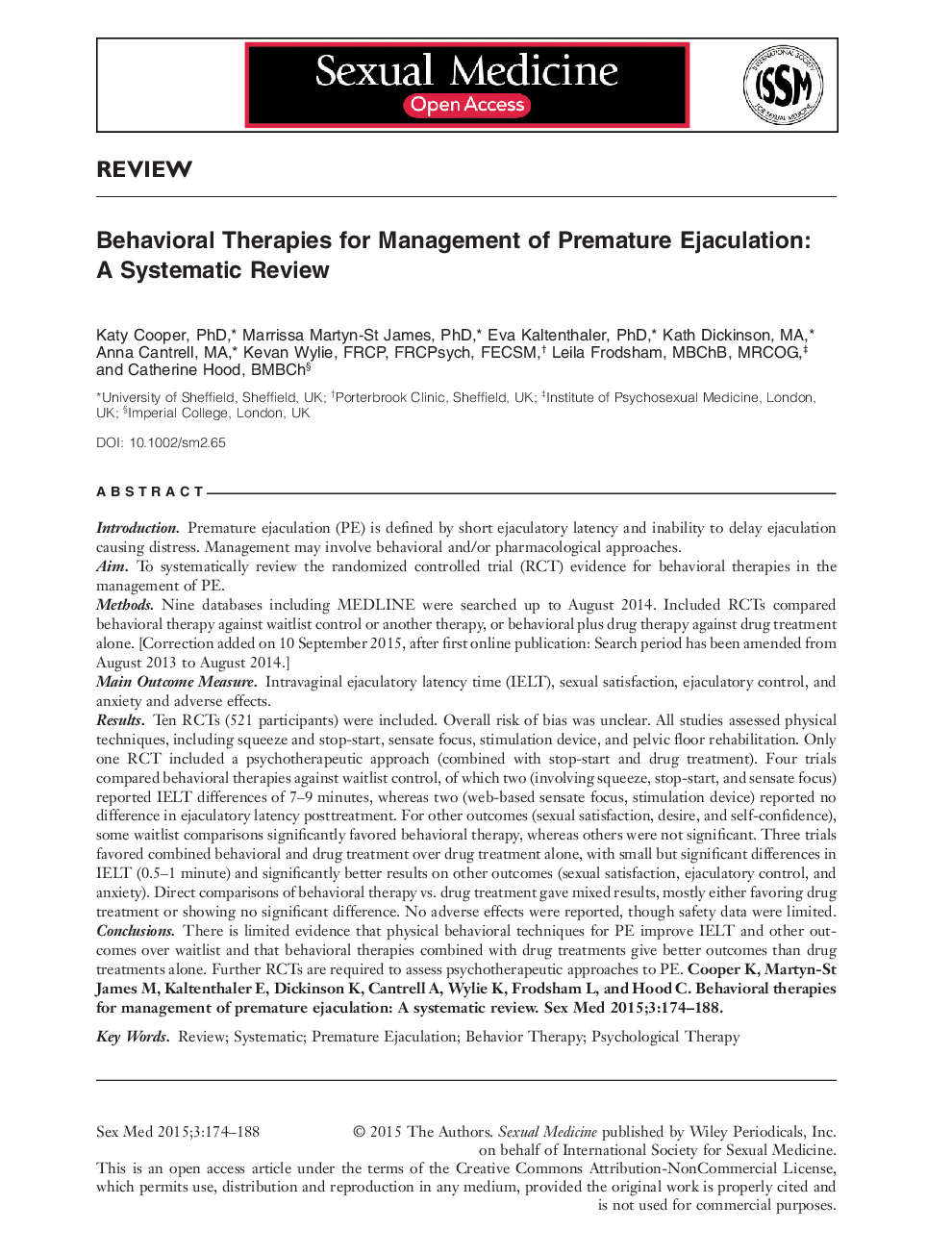| کد مقاله | کد نشریه | سال انتشار | مقاله انگلیسی | نسخه تمام متن |
|---|---|---|---|---|
| 4274559 | 1285271 | 2015 | 15 صفحه PDF | دانلود رایگان |
IntroductionPremature ejaculation (PE) is defined by short ejaculatory latency and inability to delay ejaculation causing distress. Management may involve behavioral and/or pharmacological approaches.AimTo systematically review the randomized controlled trial (RCT) evidence for behavioral therapies in the management of PE.MethodsNine databases including MEDLINE were searched up to August 2014. Included RCTs compared behavioral therapy against waitlist control or another therapy, or behavioral plus drug therapy against drug treatment alone. [Correction added on 10 September 2015, after first online publication: Search period has been amended from August 2013 to August 2014.]Main Outcome MeasureIntravaginal ejaculatory latency time (IELT), sexual satisfaction, ejaculatory control, and anxiety and adverse effects.ResultsTen RCTs (521 participants) were included. Overall risk of bias was unclear. All studies assessed physical techniques, including squeeze and stop‐start, sensate focus, stimulation device, and pelvic floor rehabilitation. Only one RCT included a psychotherapeutic approach (combined with stop‐start and drug treatment). Four trials compared behavioral therapies against waitlist control, of which two (involving squeeze, stop‐start, and sensate focus) reported IELT differences of 7–9 minutes, whereas two (web‐based sensate focus, stimulation device) reported no difference in ejaculatory latency posttreatment. For other outcomes (sexual satisfaction, desire, and self‐confidence), some waitlist comparisons significantly favored behavioral therapy, whereas others were not significant. Three trials favored combined behavioral and drug treatment over drug treatment alone, with small but significant differences in IELT (0.5–1 minute) and significantly better results on other outcomes (sexual satisfaction, ejaculatory control, and anxiety). Direct comparisons of behavioral therapy vs. drug treatment gave mixed results, mostly either favoring drug treatment or showing no significant difference. No adverse effects were reported, though safety data were limited.ConclusionsThere is limited evidence that physical behavioral techniques for PE improve IELT and other outcomes over waitlist and that behavioral therapies combined with drug treatments give better outcomes than drug treatments alone. Further RCTs are required to assess psychotherapeutic approaches to PE. Cooper K, Martyn‐St James M, Kaltenthaler E, Dickinson K, Cantrell A, Wylie K, Frodsham L, and Hood C. Behavioral therapies for management of premature ejaculation: A systematic review. Sex Med 2015;3:174–188.
Journal: Sexual Medicine - Volume 3, Issue 3, September 2015, Pages 174–188
